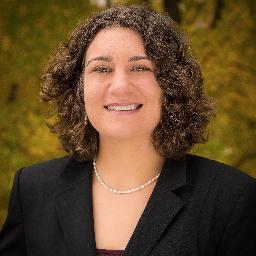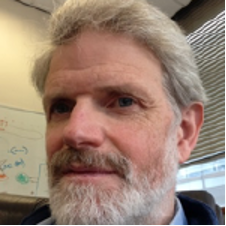Description
Knowledge-based translational medicine is a rapidly growing discipline in biomedical research and aims to expedite the discovery of new diagnostic tools and treatments by using a multi-disciplinary, highly collaborative, "bench-to-bedside" approach. Large amounts of multi-omics, imaging (medical and molecular) and clinical data can now be captured for given patient populations. In addition to the challenges of data curation and harmonisation, new computational methods are required to identify molecular signatures that suggest disease subtype. These signatures may be predictive of outcome or progression, and impact on disease management by suggesting personalised therapeutic strategies for patients. Such approaches will further the development of a new taxonomy of disease.
In the TransMed COSI meeting, we will explore the current status of computational biology approaches within the field of translational medicine.
Information of previous TransMed meeting(s) can be found here.
Link to the ISMB 2022 website is: here.
Please note:
The TransMed 2022 meeting takes place in Madison, USA, on July 12, 2022, during the ISMB 2022 conference.
Topics of interest
Topics of interest include, but are not limited to:
* Clinical and molecular data storage and integration infrastructure, including: data warehousing for translational medicine, multi-‘omics and clinical data integration, data visualization in translational medicine
* Curation and harmonization of clinical, ‘omics and imaging data, including: standards and ontologies in translational medicine, biomedical text mining and semantic representation
* Data analytics for patient stratification, biomarker and target discovery, including: disease subtype discovery, Electronic Health Records integration, translational imaging, multi-scale modelling, high performance and cloud computing in translational medicine, mathematical modelling for disease processes, pathways and networks
* Computational approaches for target selection and drug discovery, including: druggability assessment and target selection, polypharmacology, drug reuse, chemical library design, virtual screening technologies, drug discovery enabler pipelines and databases, chemical tool analysis
* ADME/PK and Tox models, including: databases and modeling approaches for ADME and PK, machine learning approaches to predicting toxicity, modeling of pharmacokinetics to man and model organism utility models
* Translational Medicine Informatics Applications/Case Studies, including: Next generation sequencing annotation and biomedicine applications, clinical data integration and application
Keynote speakers
Dr. Elana J Fertig, SKCCC / Johns Hopkins University

Biography: Elana Fertig is an Associate Professor of Oncology and Director of the Division / Research Program in Quantitative Sciences, co-Director of the Convergence Institute, co-Director of the Single-Cell Training and Analysis Center, and Associate Director of Quantitative Sciences at the Sidney Kimmel Comprehensive Cancer Center at Johns Hopkins University Sidney Kimmel Comprehensive Cancer Center. She has secondary appointments in Biomedical Engineering and Applied Mathematics and Statistics, affiliations in the Institute of Computational Medicine, Center for Computational Genomics, Machine Learning, Mathematical Institute for Data Science, and the Center for Computational Biology and is a Daniel Nathans Scientific Innovator.
Prof. Anthony Brookes, University of Leicester

Biography: Anthony Brookes is a Professor of Genomics and Health Data Research at the University of Leicester (UK). Here he drives strategic initiatives as an Associate Director for the Health Data Research UK institute (HDRUK-Midlands), and is Director of the University’s ‘NUCLEUS’ Genomics Facility. Prior to this position he held a Genomics Professorship at the Karolinska Institute (Sweden) where he established a high-throughput genotyping and biobanking facility in the institute's Centre for Genomics Research. He has published >200 articles and reviews [15,000 citations; h-index 54 (Google Scholar)], co-founded both the Human Variome Project and the Human Genome Variation Society, and now serves on the Executive Committee of the Human Genome Organisation (HUGO). He has a long-standing research program concerned with responsible data discovery, data sharing, and interoperability standards to bridge the research-healthcare data divide, especially in the areas of rare inherited disease and late-onset dementia. Research activities include: running GWAS Central (the world’s largest public GWAS database); creating 'Café Variome' (a flexible platform for sample/subject/data discovery); revealing the 'TUF' phenomenon (genomic DNA sequences which do not denature in standard analysis methods); inventing the 'DASH' method for reading DNA sequences by dynamic hybridisation; and leading various international standards teams (e.g., the GA4GH ‘ADA-M’ data model for consent and data use conditions, the IRDiRC computer-readable 'Digital Use Conditions standard (DUC)', and the GA4GH 'Beacon-2' API for federated data discovery). He is currently co-coordinator and IT lead on the EU-IMI and Gates Ventures funded program entitled 'The European Platform for Neurodegenerative Diseases (EPND)' which is establishing a global data ecosystem for discovering, integrating, accessing and analysing cohorts, samples and datasets pertaining to dementia, to advance biomarker and drug development for these disorders.
Agenda
Abstract submission
Please note: Participants are encouraged to use the FAIRDOMHub platform to create and maintain pages for projects that should be presented during the TransMed 2022.
Key dates
Detailed information can be found: here.
Registration
Please follow the registration page on the ISMB website.
Organizing committee
Venkata Satagopam - Luxembourg Centre For Systems Biomedicine (LCSB), University of Luxembourg, Luxembourg
Reinhard Schneider - Luxembourg Centre For Systems Biomedicine (LCSB), University of Luxembourg, Luxembourg
Maria Secrier - University College London, UK
Wei Gu - Luxembourg Centre For Systems Biomedicine (LCSB), University of Luxembourg, Luxembourg
Irina Balaur - Luxembourg Centre For Systems Biomedicine (LCSB), University of Luxembourg, Luxembourg
Sanne Abeln - Vrije Universiteit Amsterdam, NL
Heba Sailem - University of Oxford, UK
Irene Ong - University of Wisconsin-Madison, USA
Annop Mayampurath - University of Wisconsin-Madison, USA
Mansoor Saqi - King’s College London, UK
Meet the Organizing committee here.
Programme committee (alphabetical order)
Nikolaus Berndt - Charité Universitätsmedizin Berlin, Germany
Hanna Ćwiek-Kupczyńska - Luxembourg Centre For Systems Biomedicine (LCSB), University of Luxembourg
Irina Mohorianu - Wellcome-MRC Cambridge Stem Cell Institute, UK
Rajesh Rawal - Luxembourg Centre For Systems Biomedicine (LCSB), University of Luxembourg
Muhammad Shoaib - Luxembourg Centre For Systems Biomedicine (LCSB), University of Luxembourg
Xinhui Wang - Luxembourg Centre For Systems Biomedicine (LCSB), University of Luxembourg
Danielle Welter - Luxembourg Centre For Systems Biomedicine (LCSB), University of Luxembourg
Contact us
If you have any questions, please do not hesitate to contact us by our slack workspace.
Follow us
Twitter: #TransMed2022
Linkedin: Translational Medical Informatics Group
Open positions
Please check our page on open positions here. Alternatively, please feel free to contact us directly.
Acknowledgement
The current TransMed logo was designed by Belinda Hanson.